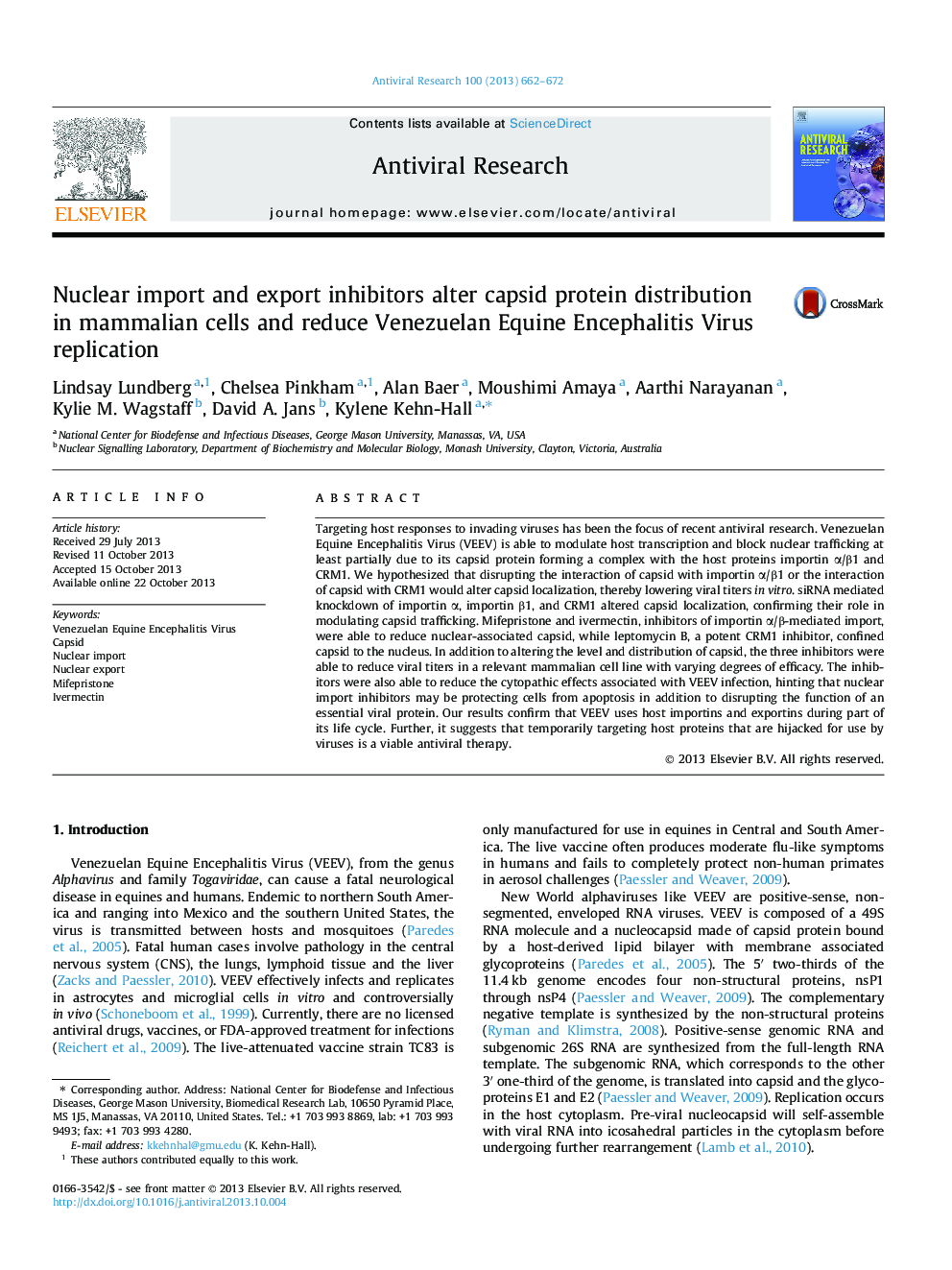| کد مقاله | کد نشریه | سال انتشار | مقاله انگلیسی | نسخه تمام متن |
|---|---|---|---|---|
| 5822300 | 1557843 | 2013 | 11 صفحه PDF | دانلود رایگان |
- Importin α, importin β1 and CRM1 siRNA altered VEEV capsid localization.
- Importin α/β inhibitors reduced nuclear-associated capsid.
- Leptomycin B, a CRM1 inhibitor, confined capsid to the nucleus.
- All inhibitors reduced the cytopathic effects associated with VEEV infection.
- Inhibitors also reduced viral replication, with leptomycin B being the most potent.
Targeting host responses to invading viruses has been the focus of recent antiviral research. Venezuelan Equine Encephalitis Virus (VEEV) is able to modulate host transcription and block nuclear trafficking at least partially due to its capsid protein forming a complex with the host proteins importin α/β1 and CRM1. We hypothesized that disrupting the interaction of capsid with importin α/β1 or the interaction of capsid with CRM1 would alter capsid localization, thereby lowering viral titers in vitro. siRNA mediated knockdown of importin α, importin β1, and CRM1 altered capsid localization, confirming their role in modulating capsid trafficking. Mifepristone and ivermectin, inhibitors of importin α/β-mediated import, were able to reduce nuclear-associated capsid, while leptomycin B, a potent CRM1 inhibitor, confined capsid to the nucleus. In addition to altering the level and distribution of capsid, the three inhibitors were able to reduce viral titers in a relevant mammalian cell line with varying degrees of efficacy. The inhibitors were also able to reduce the cytopathic effects associated with VEEV infection, hinting that nuclear import inhibitors may be protecting cells from apoptosis in addition to disrupting the function of an essential viral protein. Our results confirm that VEEV uses host importins and exportins during part of its life cycle. Further, it suggests that temporarily targeting host proteins that are hijacked for use by viruses is a viable antiviral therapy.
Journal: Antiviral Research - Volume 100, Issue 3, December 2013, Pages 662-672
